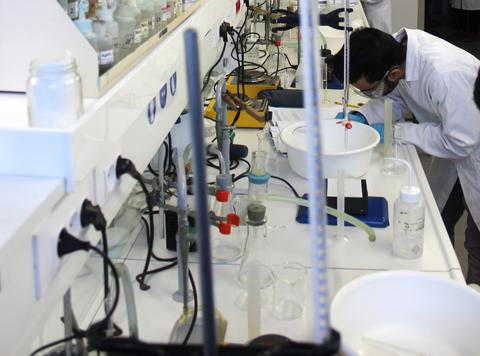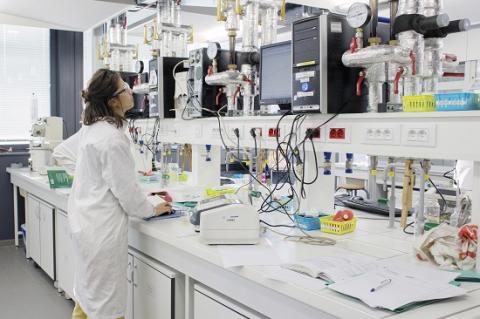
Materials Chemistry (MAT) Program
The Chemistry of Materials (MAT) curriculum is based on a common understanding of the fields of polymers and inorganic materials, which are at the core of major technological challenges linked to energy and sustainable development, healthcare and information and communication technologies.
Overview
All materials, whether organic or inorganic, functionality, reactivity or durability result from the superposition of volume, surface and interface properties. This wide range of characteristics and properties forms the basis of the program , in which the teaching has focuses on linking the fundamental and applied aspects of materials science (synthesis, structure, properties) to their economic and societal impact.
Specializations in this field and its interfaces
The skills of MAT graduates depend on the combination of UEs they choose. All graduates take the majority of their UEs in the MAT program, but some specialization profiles require UEs from other programs.
| Specialization profile | On completion of this specialization, students will be able to... |
|---|---|
| Catalysis: synthesis, reactivity and processes | Master theoretical concepts and experimental methods in the field of catalysis. |
| Durability and corrosion of materials | Master the theoretical concepts and experimental methods for improving the service life of materials. |
| Formulation | Master theoretical concepts and experimental methods to design and develop formulated systems. |
| Industrial materials | Design, synthesize and characterize materials on laboratory and industrial scales. |
| Soft matter and polymers | Master the theoretical concepts and experimental methods needed to build complex macromolecules and assemblies, and characterize and interpret their physico-chemical properties. |
| Molecular modeling and applications | Model molecular systems or materials to interpret and predict their behavior. |
| Surfaces, interfaces, thin films | Master theoretical concepts and experimental techniques to characterize and interpret physico-chemical phenomena at interfaces and design functional surfaces. |
| Inorganic synthesis | Design, develop and characterize inorganic compounds with targeted properties. |
| Energy transition | Evaluate, select and validate new processes that take energy issues into account. |
Contacts
Responsables administratives
- Céline Philippon

